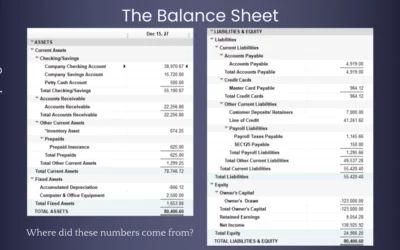Credit Card Processors and Merchant Fees
Shop around for the best fee structure!
I just stopped in our local Smith’s grocery store and saw signs posted all over the place stating that due to the high merchant fees, after April 3, 2019 they will no longer accept Visa Credit Cards for payment. You can read more about this move by Smith’s in this Supermarket News article.
Smith’s says no to Visa credit cards
If you are a retailer who accepts credit cards, — and today, who doesn’t? — you will have fees associated with the credit card companies which in turn, reduces your total sales. We classify bank merchant fees as a Cost of Goods Sold account, thereby reducing the company’s gross revenue. Remember, Gross Revenue or Gross Profit are before we deduct ordinary and regular business expenses such as salaries, utilities, and so on.
This is a good time to talk about Merchant Accounts for retail businesses that want to accept credit cards. According to CardFellow.com article “Guide to Credit Card Processing”, there are three components to the merchant fees, as follows:
- Issuing Bank — Interchange fee. Non-Negotiable fee.
- Card Brand (Visa, Master Card, Etc.) — Non-Negotiable fee.
- Acquiring Bank (Merchant Account Provider) — Processor’s Markup. Negotiable fee!
As you can see from this list of the three players in the credit card game, you, as a retailer who wants to use a Merchant Account service, do not have any choice over the first two of the three parts that make up the total fee structure. The Issuing Bank and the Card Brand set their base fees and then the Merchant Processor adds their markup to these. The question is whether the processor also marks-up the Interchange and Assessment fees as well as their own markup to the merchant?
You do have the power to learn how the Merchant Processor structures their fees and choose one that saves you money. Also, according to CardFellow.com article, when shopping for a Merchant Account service, you should look for a fee structure that is a Pass-Through pricing verses a Bundled Pricing model. This means that you pay the same amount for the Issuing Bank and the Card Brand fees, as they are passed-through to you.
CardFellow.com “Guide to Credit Card Processing”
For more information or to answer small business accounting questions, please give Manuel or Charles a call at C&M Bookkeeping, LLC. Thanks and have a great day of success!




0 Comments